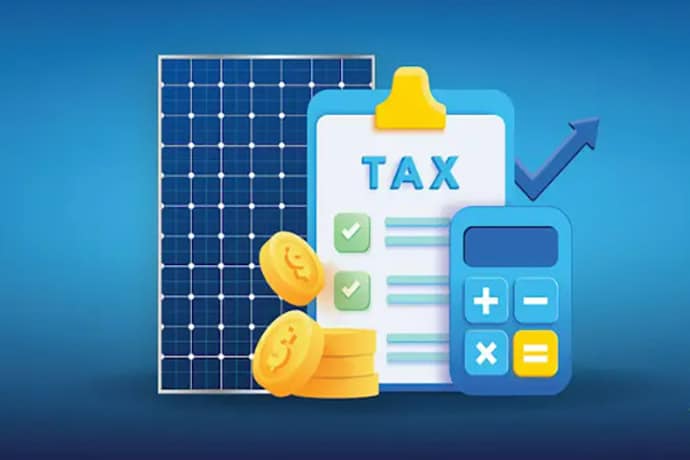As renewable energy continues to gain momentum, solar power has emerged as a leading sustainable solution for homeowners and businesses alike. In the United States, the federal government recognizes the importance of solar energy adoption and offers incentives to encourage its growth. One such incentive is the Federal Solar Tax Credit, also known as the Investment Tax Credit (ITC).
Understanding the Federal Solar Tax Credit
The Federal Solar Tax Credit is a tax incentive designed to encourage individuals and businesses to invest in solar energy systems. It allows eligible taxpayers to claim a percentage of their solar installation costs as a tax credit, reducing their federal income tax liability. The tax credit is a dollar-for-dollar reduction in taxes owed, making it a highly advantageous incentive for those considering solar power installations.
Eligibility Criteria
To take advantage of the Federal Solar Tax Credit in 2023, it’s essential to understand the eligibility criteria. Currently, residential and commercial solar energy systems are eligible for the credit, including both photovoltaic (PV) and solar water heating systems. However, it’s important to note that the tax credit is gradually phasing out for residential installations.
For residential properties, the tax credit in 2023 is set at 26% of the total installation cost. However, this percentage will decrease to 22% in 2024, and after 2024, the residential credit will no longer be available unless extended by the government.
On the other hand, commercial solar installations will continue to receive a 10% tax credit beyond 2023. Therefore, businesses have a longer window to take advantage of the full credit.

What Costs Are Covered?
The Federal Solar Tax Credit covers a wide range of solar system costs, including equipment and installation expenses. This includes solar panels, inverters, mounting equipment, wiring, and labor costs directly associated with the solar installation. Additionally, any expenses related to battery storage systems used to store solar energy for later use can also be eligible for tax credit.
How to Claim the Federal Solar Tax Credit?
Claiming the Federal Solar Tax Credit requires proper documentation and filing the appropriate forms with your federal income tax return. To claim the credit, you will need to complete IRS Form 5695, Residential Energy Credits, or IRS Form 3468, Investment Credit, for commercial installations.
When completing these forms, it’s crucial to accurately report the total costs of your solar installation, including both equipment and labor expenses. Additionally, ensure that you keep all receipts, invoices, and documentation related to your solar system, as the IRS may require proof of your expenses.
Additional Considerations
- a) Third-Party Ownership: If you choose a solar power purchase agreement (PPA) or a solar lease, where a third party owns the solar system, you are not eligible for the Federal Solar Tax Credit. The tax credit is only available to the owner of the solar installation.
- b) State and Local Incentives: In addition to the Federal Solar Tax Credit, several states and local governments offer incentives and rebates for solar installations. It’s essential to research and understand the incentives available in your specific area to maximize your savings.
- c) Consult a Tax Professional: Navigating the complexities of tax credits can be challenging. It’s advisable to consult a tax professional or certified public accountant to ensure that you understand the tax implications and maximize the benefits of the Federal Solar Tax Credit.
Conclusion
The Federal Solar Tax Credit is a valuable incentive that makes solar power installations more affordable for residential and commercial property owners. In 2023, the tax credit allows eligible taxpayers to claim 26% of their solar installation costs for residential properties and 10% for commercial properties. However, it’s important to note that the residential credit is gradually phasing out, with a reduction to 22% in 2024 and no credit available thereafter unless extended by the government.
By understanding the eligibility criteria, documenting your expenses accurately, and consulting with professionals, you can navigate the process smoothly and take full advantage of the tax credit. Embracing solar power not only contributes to a cleaner and more sustainable future but also offers financial benefits that make renewable energy installations more accessible and affordable.
Article from: https://www.sungoldsolar.com/
Your most sincere solar partner – Sungold








